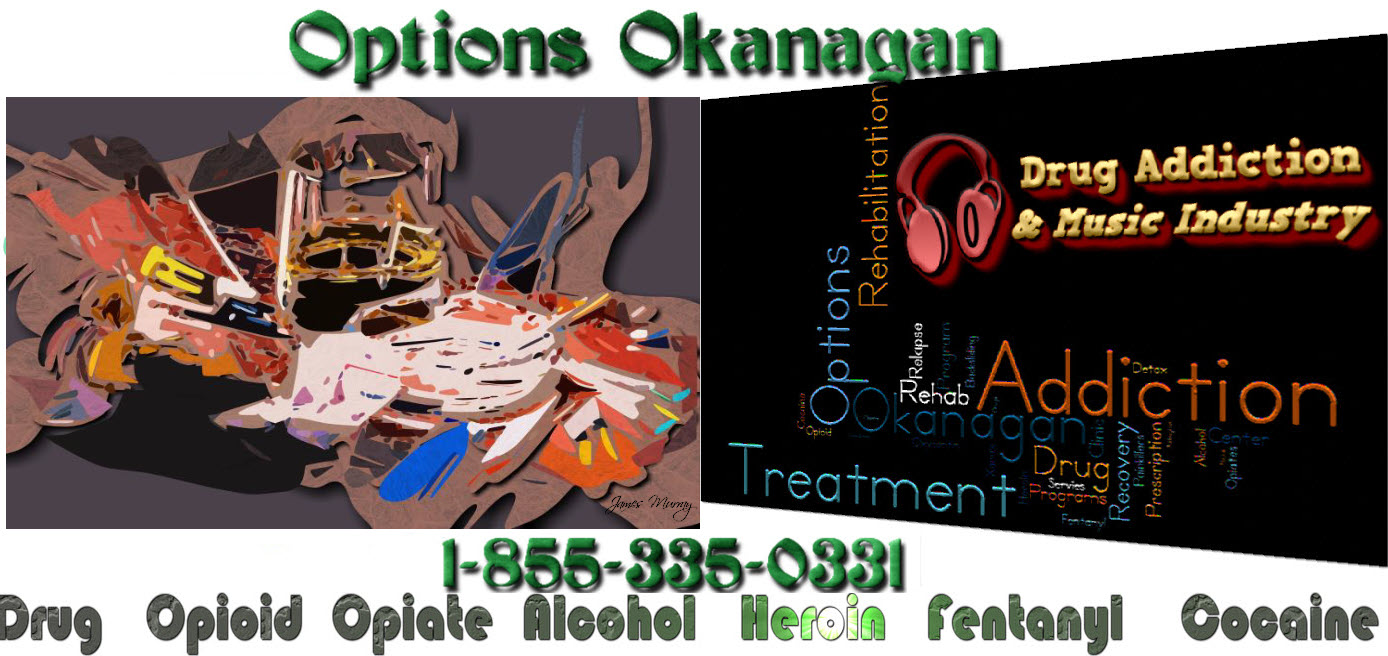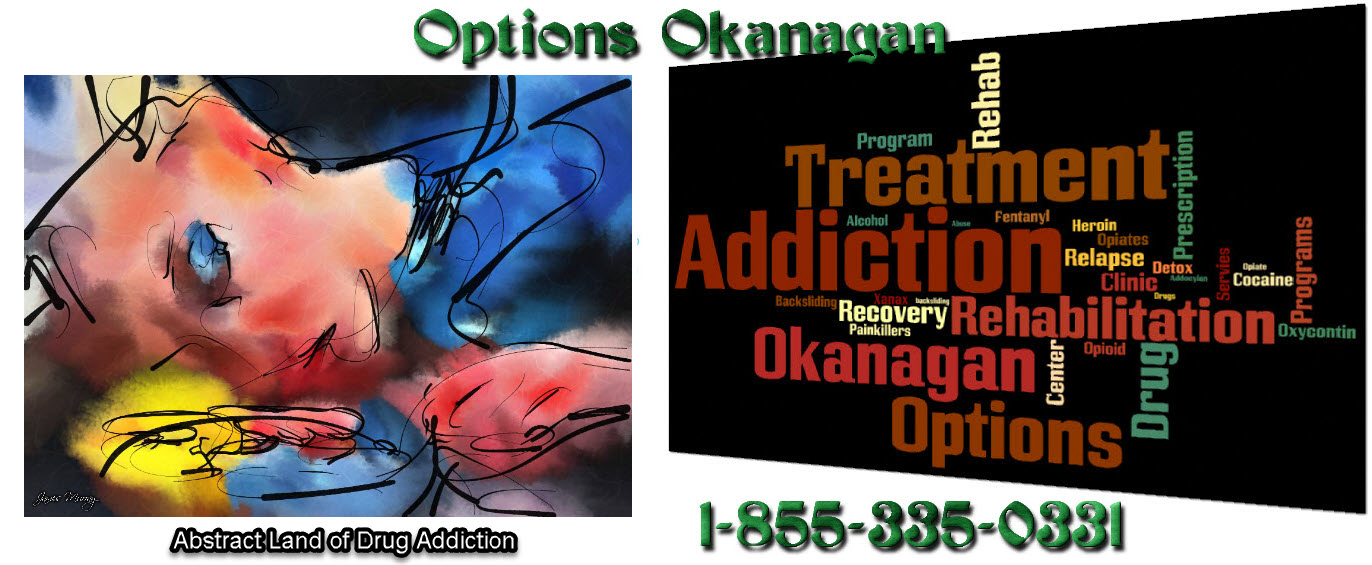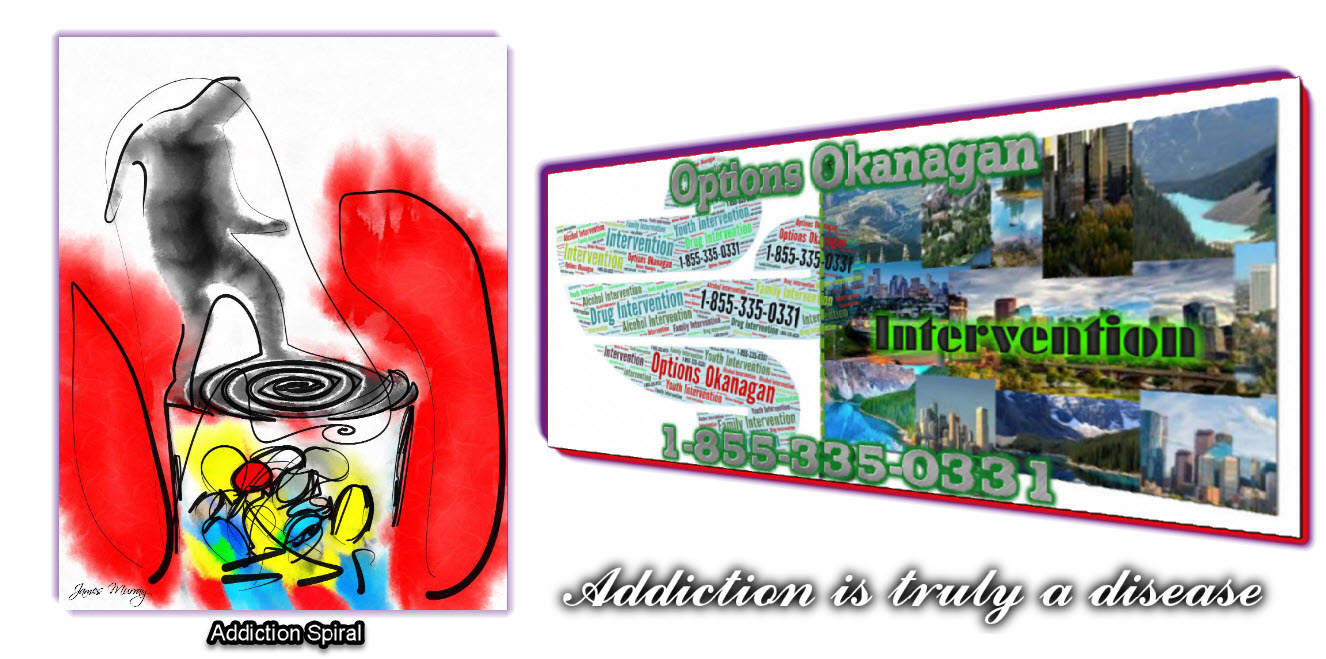Effective ways to confront a person’s addiction – Drug, opioids, opiate prescription, and alcohol addictions – Drug Rehab Programs for recovering individuals in British Columbia and Alberta – Options Treatment Center in Kelowna, British Columbia treating drugs, opioids, opiate, fentanyl, heroin, and alcohol addiction and recovery.
Drug Rehab In Alberta And BC
Is Someone You Love Fighting Substance Abuse? Getting help can be more difficult than expected. There are several reasons for this. One reason is the difficulty of dealing with addicts. Rejecting them makes it easier to accept that there is a very real problem. Rejection can also be a problem for the addict’s family and friends.
When family or friends discover that they have a drug problem and take it to an addict, they often find compelling reasons. Addicts can tell them that they can quit at any time, or that they are in control of what they do. They may reject the idea of getting help because their refusal leads them to believe they have no problem.
However, this is not the worst-case scenario. The worst part is when the addict turns around and reacts with anger or hatred at the person facing him or her. They will turn to accuse people for their drug use.
Accusing an addict is bound to turn around every time. Addicts already feel guilty, whether that’s obvious or not. Your alcohol or drug use may be hiding your true feelings, but you can rest assured that it is very hard on a person. Behind the denial hides sadness, shame, self-reproach, and feelings of guilt for what they have done to themselves and their loved ones.
However, holding on to them through alcohol or drugs prevents them from having a civil conversation about their problems. It can lead them to distance themselves even further from those who care and seek to help them. If you approach them with anger or aggression, you will get nothing.
Of course, you are angry and frustrated, but acting out of anger will not encourage the addict to seek the help he or she needs. They can become more aggressive towards you and only start a heated argument. Sometimes this comes back and the addict runs away just to do more of their chosen substance.
However, you can avoid this result. Plan to take an addict through a structured approach. Give it a little thought and think about how you would approach the person. Addicts will be easier to convince and will be more open to discussing things. This approach is known as an intervention in the area of drug and alcohol therapy.
An intervention is an organized, planned, and well-thought-out way to solve a problem. It is structured and done so that the addict feels less threatened when confronted. They will sense your concern instead of feeling like an ambush.
If the intervention is done correctly, addicts will immediately feel the love and support they have around them. An addict will be more willing to seek help. If they are not the target of anger or resentment, they will see what they have to lose if they continue their addiction. In most cases, addicts choose the help that is offered instead of drugs or alcohol. They know that life is more than any substance can provide.
A common misconception is that family members and friends should wait for someone to investigate the issue before bringing it up. Since minor problems can develop rapidly, it’s better to intervene before the addict stops the overdose, goes to jail or dies. The bottom line is a myth because the sooner a problem is solved, the sooner the addict can avoid a more serious problem.
Early intervention is recommended. As soon as a family member or friend sees a problem, they should come together and work to provide the person with structured intervention.
To prepare for the intervention, gather participants. These people will face addicts. This group includes anyone who has an impact on an addict’s life. They can make a huge difference in someone’s life.
They all have to agree that the person has a problem and that intervention is a rational solution. These people have to agree that the person has an addiction problem. You want to prevent someone who is having a serious problem from going in to deny the problem just because it might not be very helpful.
You want to gather an interested group. You don’t want anyone present who might want to argue with an addict or expect something in return. Now that you have assembled your group, you need to work on how you approach the intervention.
The most important part of the intervention is building awareness and understanding of the problem and its negative impact on everyone. It’s also about finding workable solutions that we hope will open the door to addiction recovery. Before dealing with an addict, it is a good idea to meet with an addiction specialist. Decide which treatment is best for the addict and take all possible steps to take the addict to a rescue center once the intervention is complete.
This is the part that family and friends have to sacrifice to make sure the addict can be treated. They may have to make financial cuts for these but are often taken voluntarily because they are a better alternative to funerals.
It’s always hard to deal with an addict, but there are ways to do it to be effective. You don’t have to face them alone. Family and friends should be assisted by a trained addiction specialist or professional interventionist from a local health care facility. These experts will help you plan your intervention every step of the way.
You will also carry out basic interventions with everyone to ensure success on the actual day of the intervention. Get the best chance to restore your loved ones by planning an intervention for them today.
Options Okanagan Opiate and Alcohol Treatment Centers in Kelowna, Salmon Arm and Vancouver, British Columbia – Men and Women are recovering and healing from Alcohol and Drug Abuse at our treatment center here in the Okanagan right now.
Our unique and distinctive Opiate Drug and Alcohol treatment program allows men and women to come in from Calgary as well as Edmonton as we offer airport pickup.
Numerous clients come to us from Vancouver, Calgary, and Edmonton and other locations in Alberta and even other provinces for Opiate addiction treatment, heroin drug treatment, many other drug and alcohol addictions for rehabilitation because of the uniqueness of our treatment center.
Our (Kelowna ) Alcohol and Drug Treatment Program Location:
(Not Mailing Address) Contact Us – Web Page
For Mail Delivery :: Please contact each center for correct mailing addresses, also this location is the location of our residential treatment programs in Kelowna. Please call Toll Free 1-855-335-0331 to contact the treatment center you are going to for the address and directions.
Options Okanagan Drug and Opiate Treatment Center
551 Sherrydale Crescent, Kelowna, British Columbia, V1V 2E6
Toll-Free Phone Number: 1-855-335-0331




